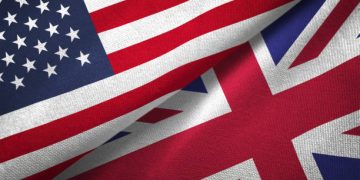The United Kingdom and the United States have officially concluded a bilateral trade agreement during the G7 summit in Canada, focusing on reduced tariffs in the aerospace and automotive sectors.
Under the newly signed agreement, the U.S. will eliminate tariffs on UK aerospace products and reduce tariffs on UK-made automobiles from 25% to 10%. UK steel exports, however, will continue to face a 25% tariff, although the UK and U.S. have pledged to work toward reducing tariffs on core steel products to zero.
The agreement was jointly announced by UK Prime Minister Sir Keir Starmer and U.S. President Donald Trump, who described the deal as an outcome of ongoing collaboration between both governments. Speaking at the summit venue in Kananaskis, both leaders framed the deal as a sign of strengthened trade relations.
According to the UK Department for Business and Trade, the United States has also signaled interest in applying most-favored-nation rates for steel and aluminum articles in the future, contingent upon the UK’s ability to meet U.S. requirements regarding supply chain security and the ownership of production facilities.
The executive order signed by President Trump refers to continued discussions about the nature of ownership of UK steel production assets. U.S. authorities are seeking assurances about the operations of British Steel, currently owned by China-based Jingye Group, which has raised concerns about tariff circumvention. The UK government, which took temporary control of the Scunthorpe plant earlier this year, has said it remains committed to addressing these concerns.
While a broader version of the deal was initially outlined in May, its finalization during the G7 summit has been welcomed by both sides. President Trump expressed optimism about future trade cooperation and emphasized the importance of long-standing U.S.-UK ties.
Mike Hawes, Chief Executive of the Society of Motor Manufacturers and Traders, said the reduced tariffs on vehicles would bring relief to the sector. “This agreement provides a measure of certainty for UK exporters and demonstrates the continued strength of the U.S.-UK trading relationship,” he said.
Business and Trade Secretary Jonathan Reynolds noted that the agreement is the result of fast-moving negotiations aimed at reducing burdens on British businesses. The UK also announced adjustments to quotas for U.S. beef and ethanol imports, while maintaining current food safety standards.
Though the agreement stops short of a comprehensive free-trade deal, which would require legislative approval in the U.S., it marks a meaningful step toward improved bilateral trade relations.
#TradeRelations #TariffUpdate #USUKDeal #SupplyChainNews #AutomotiveTrade















